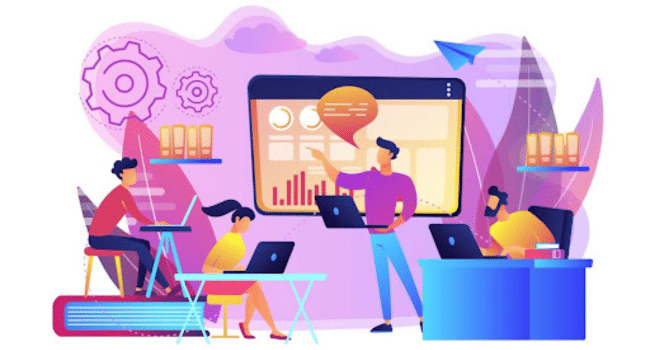Table of Contents
There was a time when a degree in business was purposed to maintain balance sheets and know trade laws; however, ‘commerce’, ‘accounts’, and ‘trade laws’ are no longer the only education a business degree should encompass. The current and future generations are being shaped by immense development in technology, entrepreneurship, and culture. Experiential learning is the path to the future in place of traditional classrooms, which is why discussion rooms, experimentation labs are increasingly on the rise in academic institutions. Real-world exposure and practice, being adept at tech, the rise of multi-dimensional qualities, going glocal (global and local at the same time), and micro-credentials, including certifications, are the transformations happening in the very DNA of business education.
From Lecture Halls to Living Labs
Mirroring real-world dynamics rather than simply explaining them is the expectation now out of a business degree. Traditional classrooms cannot support students to run simulations of global crises, manage virtual stock portfolios, or build start-ups with peers.
‘Living labs’ are spaces to create prototypes, pitch to investors, and launch betas within a closed group for active feedback. Previously, an academic degree was all that was required to prove oneself, but for an individual to succeed in today’s time, ‘doing’ is more important than just learning.
Technology as Mother Tongue
There was a time when knowing Excel itself once defined if that individual was an adept graduate; the future seeks those who are fluent in AI, digital ethics, and data storytelling. Technology is not just a tool anymore; it’s a fully functioning language or system consisting of multiple languages. In business education, it is the language(s) one must know to take part in global commerce.
The ideal classroom will involve more of ‘thinking through tech.’
Multi-Dimensional Business Leaders
Some of the most important skills to become a modern business leader today are creativity, resilience, communication, storytelling, psychology, environmental awareness, ethical know-how, and a futuristic attitude. Which brings us to the notion that such skills are not just ‘soft’ skills, they are invaluable skills that are becoming quantifiable as much as balance sheets, and are very much required.
Going Global
The meaningful interlocking of global and local is something that’s consistently on the rise. Learners can join a class taught by professors in India, but also join an international webinar being conducted in the U.S., and do both while they work on their own start-up projects. Through the advent of technology and globalization, the world has become smaller, and the best colleges and universities make sure their students get a holistic ‘global’ exposure. In the near future, this will be even further emphasized.
Credentials for a World in Flux
A degree is still valuable; however, with the world remodeling itself every hour, business education and education in general have moved beyond having just ‘degrees’ as the sole qualification required to be successful and stay relevant. Micro-credentials, short courses, and certifications are just as important, if not more important, to keep a profile fresh and relevant. In other words, the business school of tomorrow should be a place where an entire environment will be given to students to flourish in the world of business.
Finishing Thought
The BBA program and BCom program don’t just lead to corporate jobs anymore; they are transforming into a jumping-off point for entrepreneurs, innovators, and global citizens.
So, simply ‘theory’ won’t work; there has to be ‘practice’ involved in the education process, too. The tightrope between ‘academic’ and ‘applied’ will eventually be dissolved. Education in business is daring students to remake the world itself.
